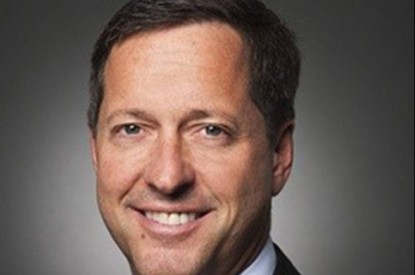SPORTS BETTING
US – AGA warns Massachusetts over banning college bets, restricting ads and taxing too high
By Phil - 25 May 2022
The American Gaming Association (AGA) has warned the Massachusetts General Court over banning bets on collegiate sporting events, placing restrictions on advertising, and opting for a tax rate too high for operators.
AGA President Bill Miller said: “Prohibiting wagers on collegiate sports would not only hinder the growth and development of a legal sports betting industry in Massachusetts, it also puts consumers at risk by encouraging their continued reliance on the illegal market, and fails to protect the integrity of games and wagers.”
AGA research on consumer betting patterns shows that Americans want to wager on collegiate sporting events. Nationwide, AGA estimates that wagering on collegiate sports accounts for as much as 20 per cent of all legal betting, which is an estimated $11.5bn of the $57.71bn wagered in 2021. This year, research found that 45 million Americans planned to wager $3.1bn on the NCAA March Madness men’s basketball tournament alone.
Mr Miller added: “While some states with legal sports betting have imposed restrictions or prohibitions on in-state collegiate events and/or events involving universities from their states, no state law or regulation for sports wagering has an outright prohibition on collegiate sports. Moreover, the recent decision by the NCAA to allow individual
institutions and conferences to pursue data-sharing agreements will further enhance the efficiency and
integrity of the legal marketplace for wagering on collegiate athletics.”
He believes that allowing legal, regulated wagering on collegiate events strengthens the integrity of games and protects bettors, competitions and the athletes competing in them by enabling robust, transparent and collaborative
monitoring by regulators and law enforcement. Only in a legal, regulated market do regulators and law enforcement have insight into betting patterns and activity that can help them identify concerning trends, that in turn help to uncover unlawful tampering with games and athletes. No such protections exist in the illegal marketplace. The collegiate sports betting market, if permitted, would be monitored not only by the regulators and law enforcement but also operators themselves that have dedicated integrity teams as well as trading functions. Additionally, operators utilize information sharing agreements with the Leagues and other sports governing bodies. These stringent oversight measures will dramatically lower any risk of match fixing.
Mr Miller warned: “Importantly, banning wagers on collegiate sports will not stop Massachusetts’ residents from betting on NCAA games. It will only force them into the illegal market and, similarly, customers who currently wager through illegal channels will be significantly less likely to migrate their betting activity to licensed sportsbooks. Many customers may prefer to keep their entire sports betting wallet with a single operator – as a result, they will not just place their NCAA wagers with illegal operators but will continue to make all their wagers with illegal operators. This gives offshore operators yet another leg up and only serves to perpetuate the illegal market. Moreover, competition from surrounding states and the ease of driving across state lines to make bets would also have a significant impact on the legal marketplace in Massachusetts if wagering on collegiate sports is prohibited.”
Restrictions on Advertising
In terms of restricting sportsbook advertising, he said ads had an essential role in drawing bettors away from the predatory illegal market to the protections of the legal, regulated market. He highlighted that the federal constraints imposed on states through the Professional and Amateur Sports Protection Act (PASPA) fueled a massive illegal sports betting market that the AGA previously estimated at $150bn annually.
Mr Miller added: “Despite recent legalisation trends, a vast illegal sports betting market continues to exist through offshore websites, which have established well-known brands that operate with a high degree of visibility and are readily accessible to residents of every state. These illegal sites also enjoy many competitive advantages that allow them to offer better odds and promotions while ignoring any commitment to responsible gaming. They do not pay state or federal taxes or have comparable regulatory compliance costs and obligations. Placing broad restrictions on legal sportsbook advertising will only exacerbate these competitive advantages by creating consumer confusion and preventing legal operators from drawing customers into the regulated market. Competing states are already advertising in Massachusetts with no restrictions, which will only increase the confusion.”
“In just the first two months of 2022, internet searches in Massachusetts for illegal offshore sportsbooks increased by 22 percent year-over-year and almost 60 per cent of all sportsbook searches in Massachusetts were for illegal sites—both above the national average,” he added. “Advertising is a critical tool in new markets to inform the public about which sportsbooks are legal and regulated, as well as to ensure customers receive responsible gaming messages. From the start, our industry’s top priority has been getting sports betting right and that includes advertising. The AGA’s Responsible Marketing Code on Sports Wagering sets a high standard for operators by prohibiting targeting underage and vulnerable populations and mandates inclusion of responsible gambling resources. It also provides a means for any member of the public to file a complaint to ensure compliance with the code.
He concluded: “In addition to the issues outlined above, the AGA also urges the conference committee to adopt a reasonable tax rate that will allow and encourage regulated operators to effectively compete against illegal, offshore entities that do not pay any taxes or generate any economic benefit for the Commonwealth. Sports betting is a low margin business and will not be viable long term if a burdensome taxation framework is adopted.”


